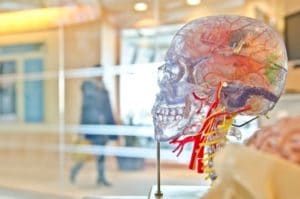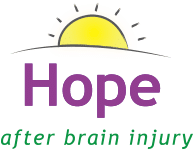Understanding the differences between traditional neurology vs. functional neurology will help patients suffering from concussions or traumatic brain injury better decide how to navigate through treatment options to achieve their best recovery.
Conventional neurology is the study of neuroscience and neurological based conditions of the brain and body. Neurology is a highly specialized division of medical care with many subspecialties. A traditional neurologist provides treatment for neurological diseases, concussion or traumatic brain injury, spinal conditions, central, autonomic, and peripheral nervous system disorders. For patients with concussions, a neurologist will conduct a comprehensive exam, to include several neurocognitive tests. Sleep studies for the suspicion of sleep disorders related to trauma and EEG brain mapping for the detection of seizures may follow based on the patient’s symptoms. Severe complications from head trauma may require a neurosurgical approach.
M edical Images such as MRIs with a DTI report provide neurologists vital information about the internal structure of the brain. DTI technology can detect visible tissue damage, and micro-bleeding caused by injury to the head. Neurologists may refer patients to brain injury rehabilitation, and a neuropsychological exam for the evaluation of short-term memory loss, thinking skills, behavioral fluctuations, and mild cognitive impairment. A neurologist might prescribe certain medications along with a recommendation for rest and a plan for re-evaluation. They may suggest patients struggling with emotional and behavioral challenges to see a psychotherapist for added support.
edical Images such as MRIs with a DTI report provide neurologists vital information about the internal structure of the brain. DTI technology can detect visible tissue damage, and micro-bleeding caused by injury to the head. Neurologists may refer patients to brain injury rehabilitation, and a neuropsychological exam for the evaluation of short-term memory loss, thinking skills, behavioral fluctuations, and mild cognitive impairment. A neurologist might prescribe certain medications along with a recommendation for rest and a plan for re-evaluation. They may suggest patients struggling with emotional and behavioral challenges to see a psychotherapist for added support.
Computerized clinical tests within traditional neurology assigned to patients with mild to moderate concussions may present average, elusive, or inconsistent results at each testing session. The inconsistencies could be a sign of patients who are suffering from a variety of fluctuating brain injury-related symptoms associated with post-concussion syndrome or the early stages of other injury linked conditions not yet diagnosed. Also, the lack of findings within medical images to support symptoms are due to the inability of the current MRI and CT technology to detect non-bleeding microscopic damage within the brain’s neurons. Many patients who have experienced a mild to moderate traumatic brain injury show no signs of brain trauma on medical images. The invisible injury of a concussion can be debilitating, life-changing, and frustrating, leaving patients feeling misunderstood while chasing symptoms from doctor to doctor.
In the past eight years, health news for brain injury survivors continues to highlight the field of Chiropractic Functional Neurology. Functional Neurology is becoming a leading contender in alternative treatment choices for patients seeking brain injury rehabilitation. Some patients who have been unable to achieve recovery results through traditional methods are sharing their stories of reaching new heights in recovery.
Amy Zellmer, an award-winning author, speaker & traumatic brain injury survivor located in Saint Paul, MN, is a frequent contributor to the Huffington Post. After spending over 18 months within traditional medicine and therapies, she had not seen the results she had hoped to achieve. After two and a half years of struggling with ongoing symptoms, Dr. Jeremy Schmoe from Minnesota Functional Neurology and Chiropractic heard her story and reached out to her. She felt she had nothing to lose by trying a new approach toward recovery. She says, “Functional Neurology gave me back a quality of life I thought I was never going to find again, and for that, I am forever grateful.”
A Functional Neurologist who specializes in treating brain injuries focuses on finding and rehabilitating the root cause of symptoms and imbalance that occurred within the brain and body after trauma. Functional Neurology Doctors who treat traumatic brain injuries differ vastly from traditional neurologist through their customized treatment approach. Since no two brain injuries are alike, a combination of unique therapies aimed at re-balancing the nervous system along with neuroplasticity methods designed to re-build new neurons within the brain, are helping patients achieve a well-rounded approach towards healing.

Leave A Comment
You must be logged in to post a comment.